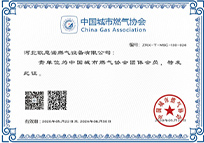
Sep . 03, 2024 18:56
Back to list
gas filtration
Gas Filtration A Vital Process for Environmental and Industrial Applications
Gas filtration is an essential process used in various industries to remove particulate matter and harmful gases from emissions. As environmental regulations become stricter, the need for effective gas filtration systems has grown exponentially. This technology plays a crucial role in improving air quality, safeguarding human health, and enhancing the efficiency of industrial processes.
At its core, gas filtration involves the separation of solid particles and pollutants from gases using various filtration techniques. These techniques can include mechanical filtration, electrostatic precipitation, chemical absorption, and membrane filtration. Each method has its unique applications and effectiveness, depending on the specific type of gas and contaminants being targetted.
One of the significant applications of gas filtration is in the power generation sector
. Fossil fuel power plants often emit significant amounts of carbon dioxide (CO2), sulfur dioxide (SO2), and nitrogen oxides (NOx) — all of which contribute to air pollution and climate change. Advanced gas filtration systems, such as flue gas desulfurization (FGD) units, are employed to capture these harmful emissions before they enter the atmosphere. By removing pollutants, these systems not only help companies comply with environmental regulations but also contribute to the overall sustainability of energy production.gas filtration

In the manufacturing industry, gas filtration is vital for ensuring product quality and protecting workers' health. Many manufacturing processes generate dust, volatile organic compounds (VOCs), and other harmful emissions. Gas filtration systems, such as bag filters and activated carbon filters, are used to capture these pollutants and improve indoor air quality within factories. This not only ensures a safer working environment but also prevents contamination of products, which is crucial for industries such as pharmaceuticals and food processing.
Additionally, gas filtration technology is making significant strides in addressing climate change. Carbon capture and storage (CCS) technologies are being developed to filter out CO2 from industrial emissions, allowing it to be stored underground rather than released into the atmosphere. This innovative approach could play a pivotal role in meeting global climate goals and reducing the carbon footprint of industries.
However, the effectiveness of gas filtration systems does depend on several factors, including the type of filter material, the flow rate of the gas, and the concentration of pollutants. Therefore, ongoing research and development are crucial to improve filtration technologies. Innovations such as nanofilters and advanced materials are being explored to enhance filtration efficiency and reduce operational costs.
In summary, gas filtration is a critical process with implications for environmental protection and industrial efficiency. As industries face increasing regulatory pressure and a shifting focus towards sustainability, the development and implementation of advanced gas filtration systems will be instrumental. By improving air quality, protecting public health, and contributing to climate change mitigation, gas filtration stands as a cornerstone of modern environmental management and industrial practice. As technology continues to evolve, we can expect to see even more effective solutions for capturing and eliminating harmful gases and particles from our air.
Next:
Latest news
-
Safety Valve Spring-Loaded Design Overpressure ProtectionNewsJul.25,2025
-
Precision Voltage Regulator AC5 Accuracy Grade PerformanceNewsJul.25,2025
-
Natural Gas Pressure Regulating Skid Industrial Pipeline ApplicationsNewsJul.25,2025
-
Natural Gas Filter Stainless Steel Mesh Element DesignNewsJul.25,2025
-
Gas Pressure Regulator Valve Direct-Acting Spring-Loaded DesignNewsJul.25,2025
-
Decompression Equipment Multi-Stage Heat Exchange System DesignNewsJul.25,2025

